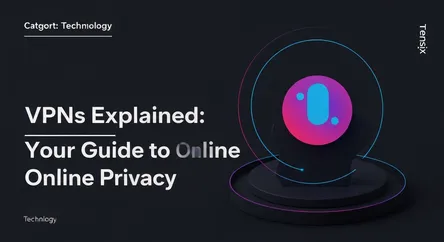Technology
VPNs Explained: Your Guide to Online Privacy

What is a VPN? Discover how a Virtual Private Network encrypts your internet connection to protect your data and enhance your digital privacy online.
What is it?
A VPN, or Virtual Private Network, is a service that creates a secure, encrypted tunnel for your internet traffic. When you connect to the internet through a VPN, your data is routed through a remote server operated by the VPN provider. This process masks your real IP address, making your online actions virtually untraceable and protecting your identity. Essentially, it acts as a private, secure passageway on the public internet, shielding your browsing activity, personal data, and communications from prying eyes.
Why is it trending?
The popularity of VPNs has surged due to growing concerns over digital privacy and cybersecurity. High-profile data breaches, increased government surveillance, and internet service providers (ISPs) tracking and selling user data have made people more cautious. Furthermore, the rise of remote work has made VPNs an essential tool for companies to secure their networks and for employees to safely access corporate resources. They are also popular for bypassing geo-restrictions, allowing users to access streaming content and websites that might be unavailable in their region.
How does it affect people?
Using a VPN significantly enhances an individual's online security and freedom. It allows people to use public Wi-Fi hotspots without fear of hackers intercepting their sensitive information, like passwords or credit card details. For everyday users, it provides peace of mind that their browsing habits are not being monitored or logged. It empowers individuals by giving them more control over their digital footprint and granting them access to a more open, unrestricted global internet, fostering digital freedom.